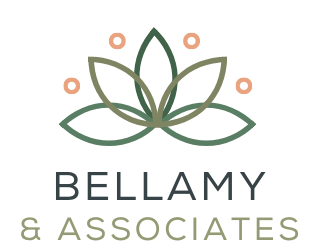Nurturing Resilience: A Comprehensive Guide to Preventing Burnout in Helping Professionals
Katie Bellamy, Licensed Clinical Professional Counselor
In the fast-paced world of helping professions, where compassion and empathy are key, burnout can often become an unwelcome companion. As adult students pursuing careers in these fields, it's crucial to prioritize your well-being to sustain the passion and dedication that drew you to helping others in the first place. It’s important to explore the intricacies of burnout, identify its warning signs, and have actionable strategies to prevent and overcome it.
Our Masters Level Clinicians, Allison, Petru, and Hannah will be hosting virtual peer support groups for adult students in helping professions January-March 2024 as a valuable resource for maintaining mental health and resilience.
Understanding Burnout
Burnout is more than just feeling tired or stressed; it's a state of emotional, mental, and physical exhaustion caused by prolonged exposure to high levels of stress and demands. In helping professions, the risk of burnout is particularly high due to the empathetic nature of the work. Recognizing the signs early on is crucial for implementing preventive measures.
Recognizing Burnout Warning Signs
Emotional Exhaustion: Feeling emotionally drained, overwhelmed, and detached from clients or patients.
Decreased Personal Accomplishment: A decline in feelings of competence and successful achievement in one's work with others.
Depersonalization: Developing negative, cynical attitudes and feelings about those receiving help.
Preventive Strategies for Burnout
Self-Care Practices:
Regular Movement: Incorporate physical activity into your routine to reduce stress and promote overall well-being. Don’t over-do it or push yourself beyond your limits.
Nutrition: Nourish your body to maintain energy levels and cognitive function. Avoid restriction or diets.
Adequate Sleep: Prioritize quality sleep to enhance emotional resilience and cognitive performance.
Regulate Emotions: It’s important to stay attuned to your own nervous system and emotional needs. The best helpers help themselves first.
Establishing Boundaries:
Define Professional Limits: Clearly outline what you can and cannot do within your professional role.
Learn to Say No: It's essential to recognize when you need to decline additional responsibilities to prevent overwhelming yourself.
Find a Cultural Fit: The helping professions are often known for their “pay your dues” mentalities and for being overworked and underpaid. Recognize the impact of the systemic issues at play and, whenever possible, find a placement that is not promoting these harmful patterns.
Seeking Supervision and Mentorship:
Regular Supervision Sessions: Engage in regular supervision to discuss challenging cases, seek guidance, and receive emotional support.
Mentorship Programs: Connect with experienced professionals who can provide valuable insights and advice on managing the challenges of the helping professions.
Continuous Professional Development:
Stay Informed: Keep up-to-date with the latest research, interventions, and best practices in your field.
Attend Workshops and Conferences: Participate in events that enhance your skills and provide opportunities to network with peers.
The Power of Virtual Peer Support Groups
Recognizing the need for a dedicated support system, our virtual peer support groups offer a unique and accessible way for adult students in helping professions to connect with like-minded individuals facing similar challenges. These groups can be instrumental in preventing burnout and fostering a sense of community.
Accessible Anywhere:
Online Platform: Joining our virtual support groups eliminates geographical barriers, allowing individuals to connect from the comfort of their homes.
Flexible Scheduling: Attend sessions at your convenience, making it easier to integrate peer support into your busy schedule. We’ll offer these sessions weekly on Tuesdays, 1-2pm Central Time from January 9-March 12 2024. You’re welcome to attend all of them, one of them, or as needed.
Affordable Peer Support: Our peer support groups for adult students in helping professions are donation-based, meaning you can pay any rate that feels doable for you, even attending free if needed.
Shared Experiences and Understanding:
Mutual Empathy: Engage with peers who understand the unique challenges and emotional toll of helping professions.
Exchange Insights: Share experiences and learn from others' coping strategies, gaining valuable perspectives.
Learn New Skills: Our Masters Level Clinicians will provide you with new tools to try for coping with anxiety and stress, and preventing burnout.
Expert Guidance:
Facilitators with Expertise: Our virtual peer support groups are facilitated by our Masters Level Clinicians who not only are adult students in a helping profession themselves, but who also come from a variety of professional and personal backgrounds.
Structured Discussions: Our facilitators will guide discussions on specific topics related to preventing burnout and promoting mental well-being.
In the demanding world of helping professions, preventing burnout is not only essential for personal well-being but also for maintaining the high standards of care expected in these fields. By incorporating self-care practices, setting boundaries, seeking supervision, and participating in virtual peer support groups, adult students can build resilience and navigate the challenges of their chosen professions successfully. Embracing a proactive approach to mental health not only benefits the individual but also contributes to creating a supportive and compassionate community within the helping professions.
To take the next step in prioritizing your well-being and connecting with peers who understand your journey, sign up for our virtual peer support group today. Together, we can build a resilient community that thrives on mutual support and shared experiences.
